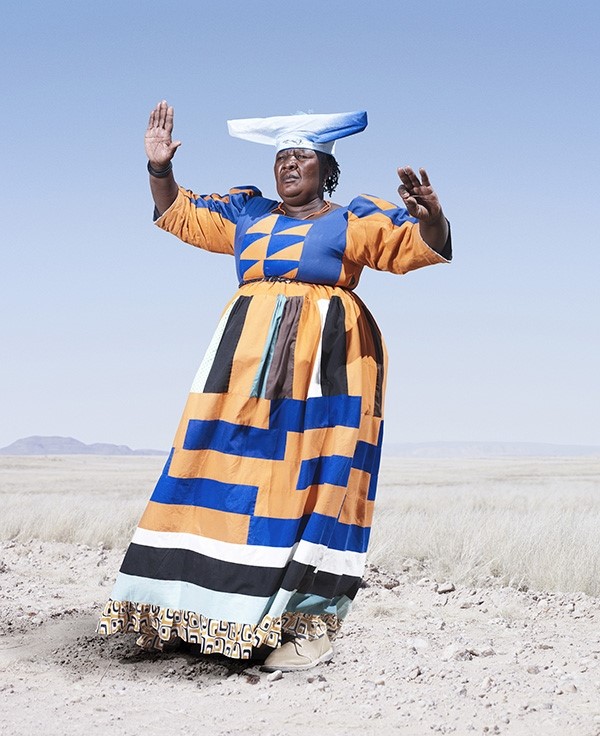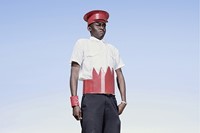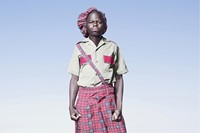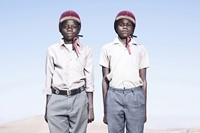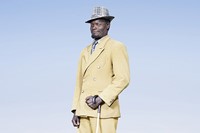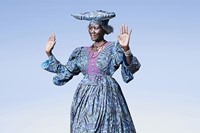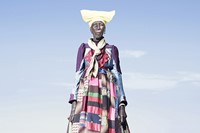When celebrated photographer Jim Naughten visited Namibia for the first time after just leaving college, he encountered a “curiously out-of-place German colonial port,” in the town of Luderitz...
When celebrated photographer Jim Naughten visited Namibia for the first time after just leaving college, he encountered a “curiously out-of-place German colonial port,” in the town of Luderitz, before travelling into the harsh and isolated Namib Desert, where he saw people and landscapes influenced by a still-present colonial past.
“The incongruity of these images,” he writes in his artist’s monograph, Conflict and Costume, “with nomadic tribes, Teutonic architecture, ghost towns and iron crosses all set against a desert backdrop, gave me the impression that I had stumbled on to the set of a peculiar spaghetti western, full of anomalies and anachronisms, where the wrong buildings had been ordered and misplaced actors cast.”
It was here that he first met members of the Herero tribe, whose contemporary dress was greatly influenced by the clothes worn by Cape Colony settlers who had arrived in Namibia during the 1900s, as well as the German forces who had established rule over the area at the end of the 19th century; an act which had led to conflict between the often brutal colonialists and tribe members.
"(I felt) I had stumbled on to the set of a peculiar spaghetti western, full of anomalies and anachronisms, where the wrong buildings had been ordered and misplaced actors cast.”
In an act of vivid re-appropriation, the Herero women are shown to be wearing Victorian-influenced ceremonial dresses, with the addition of cow horn shaped headdresses, symbolising the importance of cattle to the Herero economy. The men are shown in German Army-influenced uniforms. “Learning that this extraordinary and elegant clothing had its roots in the fashions of the Victorian era and the meeting of two vastly different cultures,” Naughten writes, “I was hooked. Namibia was a country of contrasts and paradoxes – timeless, expansive and enchanting.”
Years later, Naughten returned to photograph the Herero tribe members in earnest, choosing the stark desert as his backdrop in order to foreground the vibrant details of the tribe members’ dress. He chose to photograph weddings, funerals, festivals, military parades and gatherings, and rather than a snapshot of everyday life, the images in Conflict and Costume attempt to capture “the still space, a direct gaze,” as the “re-appropriated clothes combine to create a stillness that allows the past to speak.”
Conflict and Costume by Jim Naughten is out now, published by Merrell.
Text by Ananda Pellerin
Ananda Pellerin is a London-based writer and regular contributor to anothermag.com.
